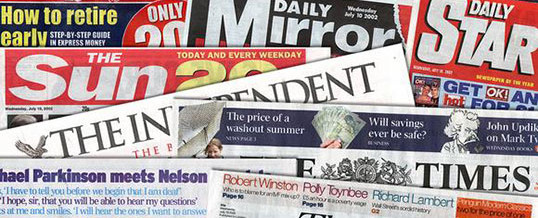
When African American filmmakers are upset about perceived inequities in Hollywood, they can blame the Jews. When a Christian (Nikos Kazantzakis) writes a sacrilegious novel about Jesus and a second Christian (Martin Scorsese) converts the book into a film, fundamentalists on the periphery still find an angle to blame the Jews.
They are lucky.
Whom shall the Jews blame for Hollywood’s decades-long denigration of Jewish women and mockery of Jewish tradition? The Christians? The Japanese? The Mongolians?
Consider Hollywood’s unique mistreatment of Jewish women. Michael Steadman of “thirtysomething” would not marry one. Stuart Markowitz of “L.A. Law” did not. Marty Gold, for all his Yiddish mumblings on “Anything but Love,” will romance anyone but Jewish women. Even the pajama salesman portrayed by Jackie Mason, the man who wears his religion on his tongue, steered away from his TV mother’s urgings to date one. (When he finally gave in, once, the Jewish woman was characterized as snorting like a pig whenever she laughed.) “Bridget Loves Bernie” was tame by comparison.
The big screen is the same. In “Exodus,” Paul Newman’s Ari Ben Canaan liberated Israel while romancing Eva Marie Saint’s British shiksa on the side. Charles Grodin at least gives a Jewish woman a chance, marrying her in “The Heartbreak Kid,” but she proves to be such a slob (she can’t even eat an egg salad sandwich neatly) that he spends the rest of the film pursuing Cybill Shepherd’s version of Nordic shiksa.
Robert Redford’s Hubbel fares no better in “The Way We Were,” suffocated by Barbra Streisand, his loud, pushy Jewish wife (who is a radical leftist to boot), struggling and finally succeeding in regaining his freedom from her clutches. Elliott Gould’s story is the same in “Over the Brooklyn Bridge,” as he battles off Carol Kane’s sex-starved Jewish woman in favor of Margaux Hemingway’s version of shiksa.
Even such sobering miniseries blockbusters as Gerald Green’s “Holocaust” and Herman Wouk’s “War and Remembrance” bear the Hollywood message. In both stories, the central Jewish family suffers annihilation in the Nazi death camps — except for the one kin with the non-Jewish spouse.
Woody Allen’s “New York Stories” vignette, to be sure, actually sees a Jewish male take a liking to a Jewish woman. But only after the canard of “The Jewish Mother” has been dragged through the mud and plastered across the sky, as she badgers her son to “make her happy” and give up the shiksa he prefers. Is Allen re-packaging “Annie Hall” — or “Portnoy’s Complaint”?
Yes, there are a few good Jewish women in the movies, so good that Jewish men deign to marry them: the women of “Fiddler on the Roof,” “Hester Street,” “Yentl” and “The Frisco Kid,” for example. But all those films share in common an omnipresent romanticizing of an era long past, a nostalgic glimpse back to a different time and epoch. In the old days, we infer, there were such women. In the old days, tradition was, well, tradition.
But today’s rabbi might just as well be the pervert in Allen’s “Everything You Always Wanted to Know About Sex (but Were Afraid to Ask)” or the Rabbi Huckelman of “Anything but Love” who plays offensive practical jokes on party-goers. When “L.A. Law” presents a man who performs ritual circumcisions, he is the butt of humor, being sued for slipping during the procedure — a horrifying matter which neither I nor any of my rabbinic colleagues have ever encountered in our respective careers.
There has never been, not in the movies and not on television, so much as a single subplot focusing on a traditionally observant, yet culturally contemporary, Jewish family engaging modern American society, synthesizing their ancient traditions with the challenges of today. When the hundreds of thousands — perhaps millions — of Americans who respect Jewish tradition watch “The Cosby Show” or “Amen,” “A Different World” or “227,” we are truly envious of our African American neighbors.
Not only do they get better treatment from Hollywood than do we. They even have a scapegoat. Whom shall we blame?
1990 Los Angeles Times, August 6, 1990
August 6, 1990, Monday, Home Edition
Calendar; Part F; Page 5; Column 1